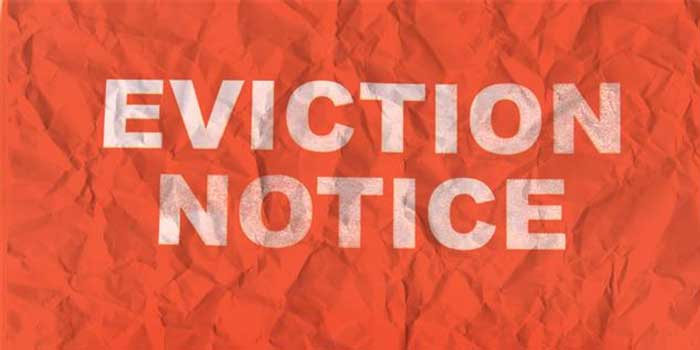You were young, a tad irresponsible and violated the terms of your lease agreement on your apartment. The landlord, having already given you a couple of stern warnings about your behavior, decided to evict you from the apartment.
Does this sound familiar? For many people, it’s a very familiar scenario. Evictions happen for a number of reasons. You may have missed too many payments or failed to pay rent on time. You may have violated the apartment complex’s pet policy. You may have been conducting illegal acts out of your apartment complex.
Heck, you may have been evicted for something that wasn’t even really your fault, but the landlord punished you anyway. Whatever the reason, evictions happen – and occur often. And while many people learn their lesson from evictions (if they were at fault in the first place) and become better people following the situation, the fact of the matter is that prior evictions could come back to haunt you in the future – especially when you’re attempting to lease a new apartment.
That’s because evictions appear on the apartment background check that landlords run on potential tenants. Here’s a look at some frequently asked questions about past evictions and how they can influence your renting history:
Do evictions show up on rental background checks? The answer is yes. And in order to determine tenant liability, the vast majority of landlords these days pull rental background checks on new applicants.
How long do evictions stay on your record? In most states, evictions stay on your record for up to seven years. Following this timeframe, they’re deleted from public record.
Do evictions show up on credit reports? Yes, evictions are added to the “public records” section of your credit report if they’re considered civil court judgments, which usually occurs when a tenant is served an eviction and refuses to leave the property. What’s more is that if an eviction appears on your credit report, it can dock your score up to several hundred points.
How long before eviction shows on credit report? This depends, but normally evictions appear on credit reports 30 to 60 days following an issued judgment.
How will an eviction impact my future apartment search? This too depends, as an eviction is a major red flag for landlords when it comes to you as a tenant. So, in a nutshell, you can likely expect a fair amount of skepticism, at best, from potential landlords if you’re on a new apartment search.
Can I have evictions removed from my reports? Possibly. The easy answer to this is to just wait out the seven years and let it lapse from your rental history and credit report. However, that’s hardly practical. In some states, you can file for an expungement to remove the eviction from your records.
I can’t get an eviction removed – am I doomed? No, you still have some options. While some landlords may be too busy to hear your side of the eviction situation and decline your application without looking into the matter any further, other landlords will do a little bit more digging. This might include questioning you to get your side of the past eviction, or contacting your previous landlord to find out just what went awry in the situation.
The best course of action to take if you have an eviction on your record is to be up front and honest with your new would-be landlord. Explain the situation, and take responsibility for it if it was truly your wrongdoing. Also, explain how you’ve grown as a person since then. Perhaps you’ve even made amends with the landlord that once evicted you and can contact them to vouch for you in your new endeavor. In order to demonstrate yourself as a trustworthy tenant, you may even be able to work out an agreement where you pay a higher security deposit or more rent.
Is it possible to pull my tenant history report to see if I have an eviction? Yes, absolutely – and we advise that you do this well before you’re ready to begin searching for your next apartment. This way, you’ll not only have a better idea of what to expect from potential landlords once you apply for residency, but you’ll be able to possibly make amends with previous landlords or have any inaccuracies – whether it’s evictions or something else – removed from your report so you’re not put on the spot.
Evictions are never something that you should welcome, and it goes without saying that you should make every effort possible to avoid them wherever it is that you’re renting. But the bottom line is that people make mistakes – it’s just a matter of knowing what to do and how to speak to would-be landlords to overcome them.




